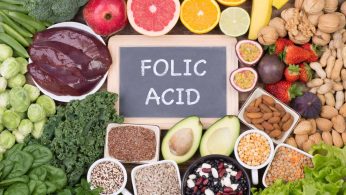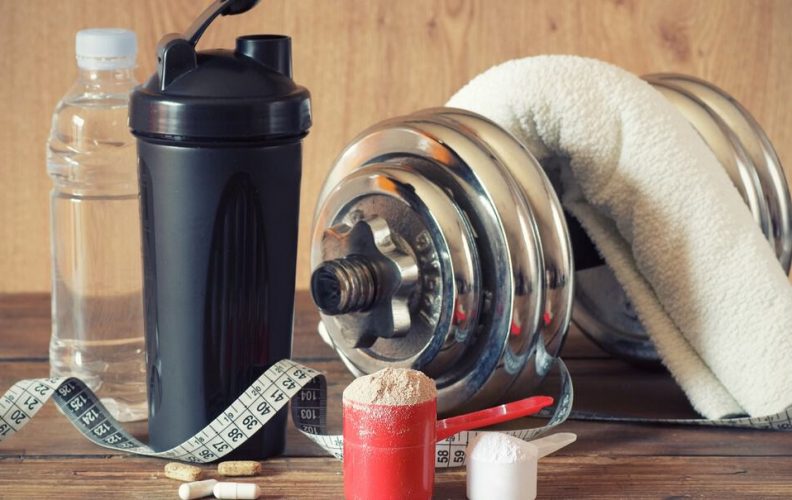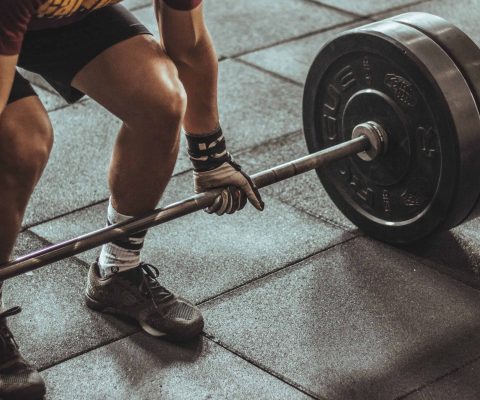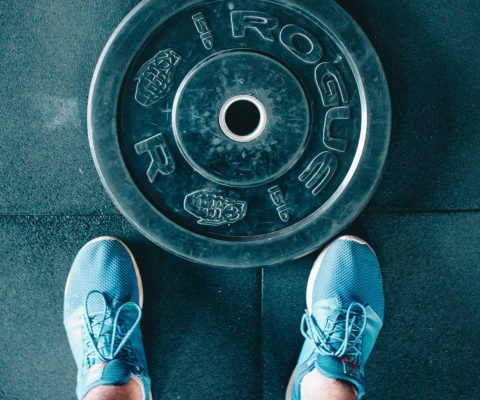Mass Gainer vs Whey Protein: All You Need to Know
Disclosure: We use affiliate links and may receive a small commission on purchases.
 Mass Gainer vs Whey Protein: All You Need to Know
thefitbay.com
Mass Gainer vs Whey Protein: All You Need to Know
thefitbay.com
Mass gainers and whey protein are two great fitness supplements. They’re designed for two different scenarios: lean mass gainer is best for putting on muscle fast, while protein powder is better if you’re looking to get shredded. Join us as we explore more about their differences.
Mass Gainer vs. Whey Protein: Which One’s Better?
If you’ve been going to the gym for a while, you’ve probably heard of mass gainers. They’re essentially protein powder, but with a higher calorie content to help you gain weight and aid muscle growth. Are they the best option for you, though? Check out our review to find the top lean mass gainer.
You’re probably familiar with good, old whey protein powder. It’s every bodybuilder’s basic go-to product. Interestingly, even people with normal activity levels, who aren’t after muscle-building, swear by its health benefits. We won’t go into depth as to what the best coffee protein powder is right now, but it’s something to keep in mind.
Now, for the differences between whey protein and mass gainers for muscle building, weight loss, weight gain, athletic performance, and overall health.
Why Should I Try a Protein Supplement?
Protein improves heart health, enhances metabolism, makes your bones strong, and helps your muscles recover from exercise. (1) It’s one of the three essential macronutrients the human body needs to function. It consists of 21 amino acids, of which nine are essential and need to be obtained from food. (2)
Supplements can make it easy to get all nine amino without the need to mix different foods. This is especially helpful if you hit the gym often and need an above-average dose of these acids. The quicker you recover, the faster you can hit the gym again, and the more efficient your muscle building will be.
The average daily recommendation of protein for an adult is 0.8 grams or about 0.03 ounces of protein per kilogram of body weight. For regular gym-goers, the requirement is from 1.1 to 1.4 grams or about 0.04 to 0.05 ounces.
However, in the case of athletes trying to build muscle mass, the needs are even higher. Bodybuilders on their bulk would need between 1.5 to 2.0 grams of protein per kilogram of body weight, from 0.05 to 0.07 ounces. (3)
Different foods from meat to cheese, legumes, or even vegetables have protein, but supplementing it is also a good idea. Mass gainers and protein powders both have a high protein content, up to 50 grams per serving. They take some of the pressure off, and you won’t have to spend the day in the kitchen.
Nutrition needs also vary with different phases of life. People on weightloss diets are at a high risk of losing muscle mass. (4) Protein powder offers a rich source of quick-to-absorb nutrients to mitigate the risks of this loss.
Recap Banner
When you work out, you’re essentially causing micro-tears in your muscles. When you rest, your body rebuilds them with the proteins available to it. The body also needs to replace amino acids, used-up from everyday activity. This is why many people take protein supplements even if they aren’t dedicated bodybuilders.
All About Mass Gainers
Some people are hard gainers—they have a tougher time putting on muscle mass, even with protein supplements. Weight gain requires that you be in a calorie surplus, which means taking in more than you need.
The problem is that there’s only so much food you can eat in a day. Even the calories of protein powder may not be enough to hit the mass-gain threshold—this is where mass gainers come in. Gainers usually include whey protein powder, but they can include other types of protein, as well.
The main difference with protein powder is that mass gainers also have high carbs and fat content. Carbs provide the energy for your body when you’re at the gym; the proteins enhance mass gain when you rest. Even though the best whey protein mass gainers are low in fat, they bring in sufficient amounts of calories to permit your body to put on weight.
That said, ensuring the quality of the mass gainer is vital if you want to put on lean muscle mass. A poor composition could see you putting on fat, regardless of your training routines.
They’re also lower in volume compared to protein powder. This means you’re going to go through the bag a lot faster and spend more. Good quality ensures that you’ll get your money’s worth.
In a nutshell, while whey protein is around 150 calories per serving, mass gainers may contain 10 times the amount. This is why they’re a great option for people who don’t have the time or the capacity to ingest all their extra calories via traditional diets.
Benefits
Mass gainers can be a good choice for longer, more strenuous activities—they give your body the easily absorbed energy it needs. This is especially important for lengthy cardio-based exercises that quickly deplete your body’s carb storages.
These supplements also help you to hit your protein targets. Weighing and calculating your food’s protein value is not always easy, and it takes a lot of time—not to mention a lot of preparation. If you’re on mass gainers, the macronutrient content will guarantee that you smash your goals, minus the hassle.
Pros
- High carbohydrate content can help you boost your performance, especially in
endurance sports. - Rapid mass gain with little effort.
- Excellent for people with a high metabolism.
- Cause weight gain.
- Low-fat and high-protein options keep your weight gain more lean muscle and less
body fat.
Cons
- Weight gainers will make you put on fat if you’re not training consistently and
intensely. - Mass gainers will fill you up, but you’ll still need to eat lots of real food to get
enough fiber and micronutrients.
Whey Protein: What There Is to Know
Whey protein comes from milk. It’s the watery side-product that separates from the curd when making cheese or yogurt. It’s then dried, pasteurized, and processed to make different products.
Most people start taking whey protein powder when they get serious about training their muscles, but it’s also recommended for people outside of the bodybuilding community. It usually has a low carb and calorie content, which makes it a great addition to a healthy diet directed at losing weight.
If you’re an averagely active person and want to supplement your protein, whey protein is an inexpensive option. It’s also available in hundreds of different brands and taste combinations—from basic strawberry to cinnamon bun. You can even switch your morning coffee to a healthier option by adding coffee protein powders to your smoothies.
There are three basic options available, along with blends that mix well with casein or egg protein:
- Concentrate.
- Isolate.
- Hydrolysate.
Whey Protein Concentrate
Whey protein concentrate is the least expensive type of whey. Different brands have different protein contents, typically ranging from 30 to 90 percent. Concentrated whey has more lactose and a lower protein content than both isolate or hydrolyzed variants. (5)
Whey Protein Isolate
Isolate is heavily filtered. The process removes fat and lactose, which makes this easier to digest than concentrate. It also has fewer carbs and higher protein content, around 90 percent. (5)
Whey Protein Hydrolysate
This whey variant is made through hydrolyzation—a process that requires acidic conditions and high temperatures to isolate the protein. This raises the protein content, making hydrolysates easy to digest.
If you’re sensitive to lactose, hydrolyzed whey protein might be right for you. In some studies, it has also registered improved athletic performance. (6)
Benefits
Whey protein is a good, on-the-go product that helps you make sure your macros are in check, without sacrificing your weightloss goals. The difference between whey protein and mass gainers is that a simple protein powder has a much lower calorie and carb content. It won’t result in a substantial mass gain, but it will help you recover faster from working out and building or maintaining muscle.
Whey is also great for people with protein deficiencies, which are especially pronounced when we get older. (7) This is why it’s important to maintain a correct macronutrient intake at an older age.
Pros
- Easily absorbed and digested by the body.
- Lower calories than mass gainers.
- Relatively inexpensive and widely available as a supplement.
- Pure whey protein isolate contains very little lactose.
Cons
- Whey protein has a lower calorie content relative to mass gainers, which might not
be enough for hard gainers and people with a high metabolism. - Overuse can lead to adverse side effects: nausea, stomach pains, and headaches.(8)
Recap
Increasing your protein intake will have a positive effect on your metabolism, and aid you in your weight loss goals. Many people end up losing muscle mass, and even bone density, when on a diet. The increased protein content will not only keep you satiated for longer, but it will also prevent you from losing muscle and bone density.
When to Take Mass Gainers
Take a mass gainer where whey protein falls short. They’re also good for significantly boosting your calorie intake healthily to gain weight. This might happen when you’re bulking or if you’re very lean and have a hard time putting on muscle. It could also be that you simply don’t have enough hours in the day to eat enough healthy foods to meet your calorie and protein targets.
If your muscle growth has experienced a plateau, a mass gainer might be just what you need to break out from it. You could switch your training methods or up the intensity, and combine it with a weight gainer to make sure you’re in a caloric surplus.
Have a shake in the morning to help you power through your day, or take mass gainers directly after your workout. The protein in the mass gainer will help you recover faster. You’ll also get your extra calories at a time when you, otherwise, might not be prepared for a full meal.
Keep in mind that a weight-gain diet should always be adequately planned, especially when you’re taking a supplement with a high-calorie content. Most people don’t calculate their calories accurately, and with macronutrient ratios, it can get even harder.
It takes time and effort to hit the exact point that will work for you. Start slow, monitor your progress, and tweak your diet if necessary.
When To Take Whey Protein
The main difference between whey protein and mass gainer is the calorie, carb and fat content. If you want to drop a couple of pounds and get shredded, steer clear of the mass gainer. A product so rich in calories will not help you get rid of body fat. Any exercise will burn through the carbs in the mass gainer first, before digging into your body’s fat storage.
Whey protein, on the other hand, is a cutting season staple for bodybuilders. It’s lean, easy, and helps you keep your muscle and bone density while on a caloric deficit. Keep it with you and drink a protein shake right after your workout. You can also add it to a meal during the day.
No supplement will replace a healthy diet with vitamins, antioxidants, and fiber. Additional protein and calories are only meant to keep your macros sufficient and prevent muscle loss.
Whey Protein vs. Mass Gainer: Which One Is Better?
Both products clearly have their merits, even though they’re very different. However, there are many situations where one is superior to the other. We’ll go through the different scenarios, and help you decide which one of the two is better for your situation.
Whey Protein vs. Mass Gainer for Bulking
For bulking, mass gainers are the clear winner. They’ll help you reach the needed calorie surplus to gain weight and put on some serious muscle. You do have to manage your intake, however. It’s easy to go overboard with any kind of bulk, more so if you’re drinking a third of your calories.
This kind of product also needs to be accompanied by a hypertrophy-oriented training program. Progressively overloading the muscles while keeping your protein and calorie intake high should help you reach your bulking goals.
Mass Gainer vs. Whey Protein for Athletic or Sport Performance
Both products are great for performance. That said, mass gainers give you energy for longer—thanks to their larger carb content. Whey protein, on the other hand, is better for athletic performance and recovery.
If you’re into cardio-based activities, like long-distance running, you might need mass gainers to help you power through. If you’re a normal gym goer or weightlifter, a whey protein supplement will most likely have all the energy you need.
Mass Gainer vs. Whey Protein for General or Overall Health
For general health, whey protein is a safer choice. It will keep you satiated, control your weight, and help you maintain muscle and bone density. A mass gainer’s higher calorie and carb content will make you put on weight if you’re not training every day. This isn’t generally the goal for most people seeking to advance their overall health.
Whey protein is also a great addition to an otherwise healthy diet, even if you’re not doing serious bodybuilding. You can add a scoop to your morning smoothie, or use it as a high-protein additive in baking. A morning protein shake will also help you start the day strong, without consuming too many calories.
Summary
The question of mass gainers vs. whey depends on your body type and goals. Don’t go for mass gainers if you aren’t looking to increase your calorie intake and gain weight. If you only need a little boost in your daily proteins, a scoop of whey should do.
Mass gainers are very good for fast muscle growth, thanks to their high calories, carb, and fat content. However, if you aren’t into serious training, you might end up gaining too much fat. Follow a program and track your macronutrient needs if you’re looking to gain muscle.
These products may help you reach your goals if it’s otherwise hard to get in the necessary amount of calories or protein. However, they won’t drag you to the gym or give you the micronutrients your body needs every day. Always keep them as an addition to an otherwise healthy and balanced diet.










